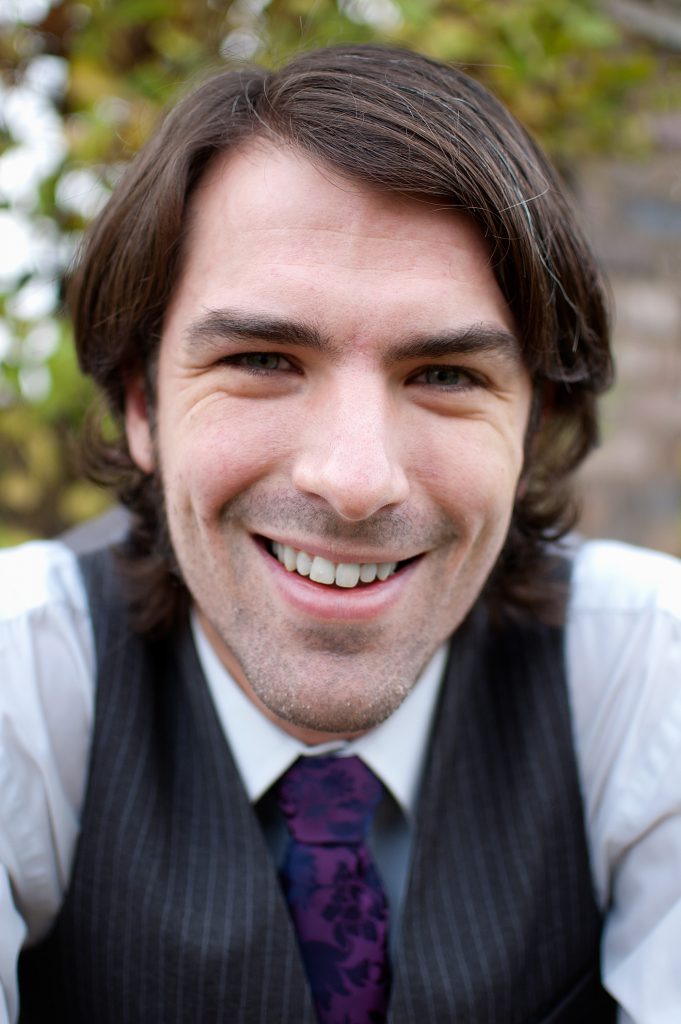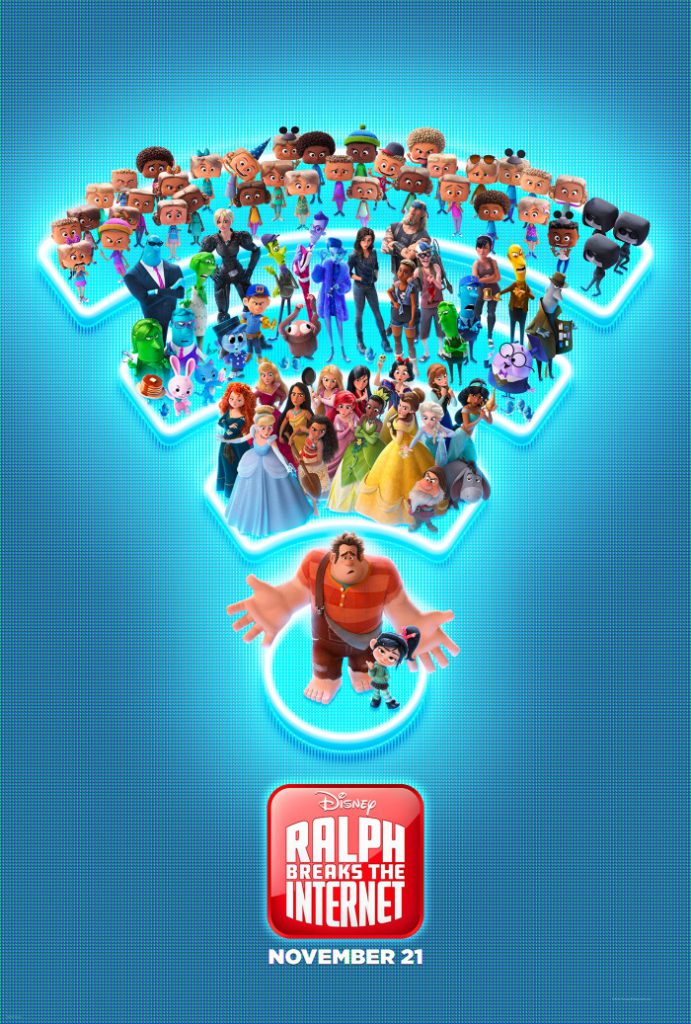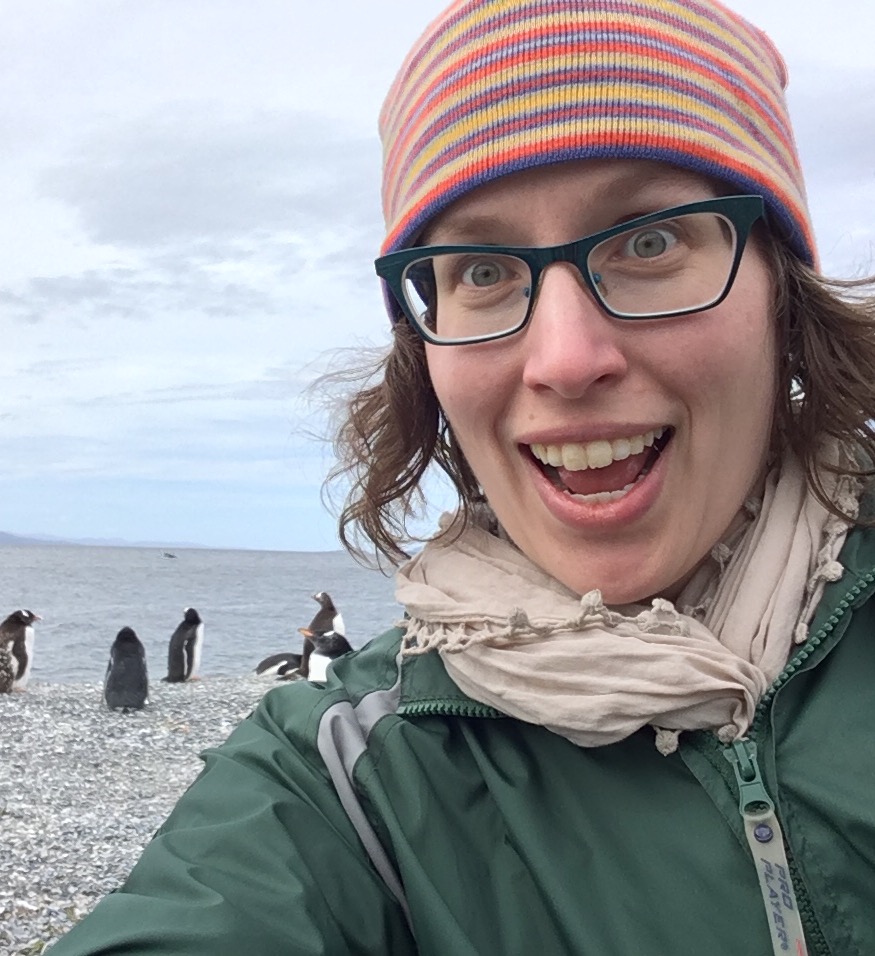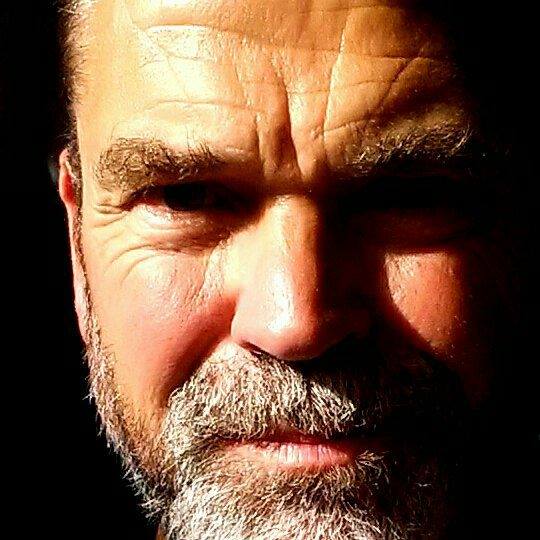In a generational shift that some claim threatens the fabric of existence and the sanity of all humanity, surveys show that worship of the Elder Dark is at a record low for one particular group—millennials.
Bob Rawlins is worried. “When I was growing up in the 1950s, I made my obeisance before the Manifold Insanity every night, uttering the invocations to satiate the Watchers Just Beyond and keep them at bay for one day longer. But young people now aren’t prepared to make the necessary sacrifices.”
I remind him that human sacrifice was deemed unnecessary and illegal in 1985, and animal sacrifice in 2009.
“Well I don’t mean literally,” he says, though there’s a note of longing to his tone.
Bob is showing me round his inner sanctum, a converted basement given over to the worship and appeasement of the Unknowable Gods. He’s the Grand Dark Supplicant of his local chapter, and is continuing a long family tradition: men of his bloodline have been bound to the service of the Elder Dark since the days of the Pilgrims.
“Our ranks are already thin,” he says, resting a hand intimately on an idol of the Ten Thousand Staring Eyes. “I worry the world I’ll leave behind will be overrun by the gibbering horrors of the between spaces, ushering in a never-ending age of nightmares and insurmountable monstrosities. It breaks my heart to think of the Eight Palms golf course getting swallowed by a roiling pit of blackness. Hole five’s a real beauty.”
In town, I talk with a group of twenty-somethings working in the local coffee shop. Aren’t they anxious about the impending immolation of mankind and the eternal night of the Elder Dark?
“Well, I guess,” says Luiz, shaking chocolate onto my cappuccino in a cephalopodan design. “But it’s hard to get worked up about such a distant prospect when I’m mostly worried about making rent next month.”
“Yeah, yeah,” agrees Deema, another barista. “And even if I had the brainspace to worry, I haven’t got the roomspace in my apartment for a shrine. I make my obeisance when I visit my parents at the weekend, but my apartment’s so cramped the shower’s in the kitchen. Where am I meant to find the space for the Eighteen Forms of Frozen Madness?”
“Not that I have any time for the complete incantations anyway,” says Luiz. “As soon as I finish here I start a shift at the Midnight Dark Bar on 8th. Do you know how much mess is made by people burying the futility of their infinitesimal existence in drugs and debauchery? By the time I get home from cleaning that up I’ve only got five hours before I’m back here. It’s hard to muster the energy for self-flagellation on four hours’ sleep a night.”
These responses may sound cynical and resigned, but talking to Luiz and Deema, there’s a sense of frustration: they want to be doing more. But some millennials have other reasons for abandoning the worship of the Elder Dark.
“These old dudes—and they’re always old dudes, you notice that?—they’re all caught up in this spiel, like, ‘If you don’t perform the rituals of devotion then the world will fall to lunacy’, and I’m like, dude, look around already!”
Ace shakes their long dreads dismissively and sips a green tea, looking over the gray ocean from their dilapidated RV. Their parents were members of the ultra-orthodox Church of the Nineteenth Insanity; Ace left home at seventeen, sent on their mission to witness the madness of the wider world. It was meant to reinforce the importance of keeping to the convoluted strictures of the Nineteenth Insanity, necessary to resist the influence of the Watchers Just Beyond.
But instead, says Ace, they saw only human madness.
“Like, all the suffering and hurt and injustice, that’s not coming from beyond the Pierced Veil, ya know? It’s caused by politicians and corporations on this side! People are blind to the roots of their problems, blaming it all on these creatures they’ve never even seen, right?”
“It’s sad to hear,” says Kathy Halton, Honorary Senator for the Sunken State of Hggibbia. “I represent the Many Drowned Dead, so I know better than most what the cost of failure is.”
Senator Halton looks up at the huge oil-on-canvas that hangs behind her mahogany desk, The Sinking of Dead Men’s Deeds, that infamous night when eighty thousand souls were lost to the sea. The eye is drawn irresistibly to the dark slash that hangs in the sky, the Pierced Veil itself, and the indescribable creatures of the Entropic Menagerie that spill forth—and it is surely an unparalleled artistic feat to paint a creature that cannot be described—and there is a strange sensation of being drawn into the painting, as if the soul itself is being pulled out through the eyes and reeled into that perversely dark hole on the canvas. Only Halton’s smooth voice breaks the spell; she seems used to the painting, immune to its attraction.
“Some people are so desperate for a mundane explanation they’ll ignore the evidence of their souls,” she says. “The irony is many of this country’s problems can be traced back to a disturbing lack of faith in the younger generation.”
But isn’t there an increasing consensus on grassroots social media that neoliberal government policies of the last thirty years are to blame for irrevocably leading us to this point of critical failure, where the very substance of the multiverse is threatened with annihilation by wage stagnation and an untenable housing market leading to unrealistic work expectations?
“If only it were that simple,” she responds. “We’re doing everything we can to encourage participation despite the economic downturn, including state-funded glossolalia lessons and mandatory flagellation breaks for government employees. But we can’t force a free soul to act.”
Two days later we’re standing on the windy beach at Chatham, Massachusetts for the annual Sunken Memorial, facing the steel-blue Atlantic where Hggibbia once stood. Senator Halton leads a group of representatives through the Silent Evocations of the Eighteen Forms, their dark trench coats snapping in the wind like ravens fighting over scraps. Two assistants have to help the elderly Health Secretary Johnson through the movements, sometimes physically lifting him to position his limbs correctly.
Fifty yards away, behind a mesh fence and a police line, there’s a protest taking place. I’m not surprised to see Ace at the front, leading a chant of WE’RE NOT INSANE, WE’RE JUST MAD, WE BLAME YOU FOR A WORLD GONE BAD.”It’s all a distraction!” they tell me to a chorus of agreement from their fellow protestors. “They’re using the myth of the Elder Dark to stop you noticing their corruption!”
“Yeah,” interjects another protestor, her pink hair straggling over a loose-fit chunky sweater. “Like, did you know they used this stuff to justify some super racist ideas? Most people can’t spot the subtext now, but if you read the old stuff they basically claimed Jews were in league with the Watchers Just Beyond, right? It’s unbelievable!”
Ace picks up the argument, a real bitterness in their voice. “They like, try and handwave that racism away now, ya know, claim you have to understand it in the historical context, but it just proves how they fit it to their agenda at the time. It’s all bullshit. You can’t trust them.”
I go back to see Bob Rawlins. He’s invited me up for the traditional orgy that marks the Approach of Winterdark, more commonly called the fall equinox. He prepares for the night by stripping naked, beating his tattooed skin raw with a branch of Hggibbian driftwood, and pulling a tight red hood on that covers his eyes.
He offers me the branch and a spare hood, but I respectfully decline.
There’s fifty or more participants gathered at the edge of town for the ritual, all naked bar that same red hood. It’s meant to evoke a feeling of insignificance, reminding supplicants they are only anonymous flesh to the Watchers Just Beyond, but the effect is undercut somewhat by small town America: everyone is easily identifiable from their voice and body shape, and Bob chats casually about DIY projects and school district elections as the sun sets.
Once dusk grows dark and a chill settles in, Bob climbs onto a flame-lit stage set up for the event, reminds everyone to stick around for the barbecue afterwards, then begins the Rituals of Unending Vigilance. I find myself talking to a late arrival: Eric Rawlins—Bob’s son.
“I’m only back for the weekend,” he explains, shuffling uncomfortably. “It means a lot to Dad that I get involved.” He’s eschewed the naked dedication of his father and kept his jeans on, a single Screaming Gshvaddath tattooed in Shifting Ink just below his red hood, dancing wildly in contrast to Eric’s diffidence.
Presumably his father is grooming him to continue the family tradition?
“Yeah, he’s really enthusiastic about the whole thing. Dad’s worried that if I’m not ready to continue his work the next time his back gives out then the Elder Dark will flood the world and shackle humanity to an eternal yoke of madness while he waits on his pain relief prescription. He honestly believes he’s the only one holding it back right now.”
Does Eric think participation is down because people are coming to terms with the history of it and stepping away? I repeat some of the theories I heard at the rally.
“Yeah, I’ve heard those ideas too. I agree with them, to be honest, with the people saying the Worship has racist underpinnings, but don’t tell Dad. He thinks the texts are sacrosanct, and it’s like, if you criticise them, you’re criticising him. But there’s a growing online movement to embrace the original truth of the Unknowable Scriptures, peeling back the layers of human influence and prejudice. We’re all just meat to the Watchers after all, regardless of our skin or beliefs, beneath the notice of an unfathomable Universe made of madness and unending time. I can show you some really interesting Subreddits after this.”
On stage, Bob is in an awkward crab position, thrusting his flaccid penis towards the night sky and howling in ecstasy. Blood drips from his back where a bed of nails beneath him pierces his flesh over and over; volunteers in hi-viz jackets wait at the edge of the stage with antiseptic cream, stood before signs reminding participants to PRACTICE SAFE SUPPLICATION.
Eric looks anywhere but the stage as the crowd shrieks back, lacerating their own flesh with a variety of pointed implements. There are spiked paddles in ornately carved mahogany, hand-sharpened sticks of blasted elm, and one Hello Kitty cat o’ nine tails.
“Dad worries too much, to be honest,” says Eric. “I’ve met a lot of people at college, and at the end of the day people are decent. They do what they can when they can, even if it’s just carving Escherian shapes into their avocados at breakfast. We’re not gonna let the world run to shit with shambling horrors at the bus stop and tentacles blocking up the plumbing. We’ve gotta live here too, after all.”
Eric finally responds to his father’s exhortations with a self-conscious howl, and pricks his thumb with a pocket knife. Bob looks out from the stage, and spots his son; he lifts a hand in greeting, then, unbalanced, slips and lands heavily on the bed of nails. His scream of pain is answered faithfully by the crowd, but Eric runs forward and clambers on stage. He eases his father off the nails and they limp to the side, where a volunteer frantically unpacks a first aid kit.
A brief yet intense exchange follows. The body language is clear: Bob wants Eric to finish leading the worship. The crowd is wavering, their flagellation tools drooping like their middle-aged bodies. I see the moment Eric takes the burden on: his back straightens, his jaw clenches, his shoulders square. He’s doing a good impression of being ready for this, and I find myself hoping it convinces Bob.
Eric strips off and positions himself over the nails. He picks up the chant perfectly from where his father left off, closing out the ceremony with vigour, athleticism and rather more—shall we say—rigidity than his father could manage.
Off to the side, Bob stands with his legs wide as his bleeding scrotum is gingerly nursed by the volunteer paramedic. He’s removed his red hood, and he watches Eric lambaste the crowd with a final chant of “Yhiu! Kaftagh falln!” and receive the answer of “Engibbigth valectia!”
His face shines with paternal pride.
© 2019 by Matt Dovey
Author’s Note: If you can’t spot the inspiration for this story, I envy you. I can’t go a week without seeing some new article blaming millennials for some natural shift in an evolving world (my favourite from my research: millennials are killing bar soap. WHO EVEN CARES). That said, it was actually reading another parody article that triggered the idea: Why Aren’t Baby Boomers Eating Pho? Given that Lovecraft pastiche is never far from my mind anyway, it only took another hour for the first draft of this to flood out of my fingertips in some indescribable frenzy, typing like a man possessed, suddenly granted ideas beyond my mortal comprehension. My mind has never been the same since, scarred by the knowledge of what lies beyond my temporal horizon: younger generations, acting differently from me. Truly, a cosmic horror to chill the soul.

Matt Dovey is very tall, very English, and most likely drinking a cup of tea right now. He has a scar on his arm from a ritual performed unto the Watchers Just Beyond, imploring them for the boon of great knowledge, but all he got were the lyrics to Dashboard Confessional’s watershed album The Places You Have Come To Fear The Most. He now lives in a quiet market town in rural England with his wife & three children, and despite being a writer he still hasn’t found the right words to fully express the delight he finds in this wonderful arrangement.
His surname rhymes with “Dopey” but any other similarities to the dwarf are purely coincidental. He’s an associate editor at PodCastle, a member of Codex and Villa Diodati, and has fiction out and forthcoming all over the place, including all four Escape Artists podcasts, Flash Fiction Online and Daily SF. You can keep up with it all at mattdovey.com, or follow along on Twitter and Facebook both as @mattdoveywriter.
If you enjoyed the story you might also want to visit our Support Page, or read the other story offerings.









 Smallfoot is a 2018 computer-animated musical adventure children’s film about a town of yetis living in high mountains above the clouds, oblivious of the human world until plane crashes and a young yeti, Migo (Channing Tatum) sees a smallfoot (their name for humans). Everything about the yetis’ lives is defined by the laws written on ancient stones worn by their leader the Stonekeeper (Common). Migo is the son of Dorgle the gong-ringer (Danny DeVito) who rings the gong every morning to make the sun rise. Every day is spent with daily labors that don’t have a clear purpose but are prescribed by the stones. Migo and his young friends, including Meechee the Stonekeeper’s daughter (Zendaya), Gwangi (LeBron James), Kolka (Gina Rodriguez), and Fleem (Ely Henry) question the wisdom of the stones.
Smallfoot is a 2018 computer-animated musical adventure children’s film about a town of yetis living in high mountains above the clouds, oblivious of the human world until plane crashes and a young yeti, Migo (Channing Tatum) sees a smallfoot (their name for humans). Everything about the yetis’ lives is defined by the laws written on ancient stones worn by their leader the Stonekeeper (Common). Migo is the son of Dorgle the gong-ringer (Danny DeVito) who rings the gong every morning to make the sun rise. Every day is spent with daily labors that don’t have a clear purpose but are prescribed by the stones. Migo and his young friends, including Meechee the Stonekeeper’s daughter (Zendaya), Gwangi (LeBron James), Kolka (Gina Rodriguez), and Fleem (Ely Henry) question the wisdom of the stones.